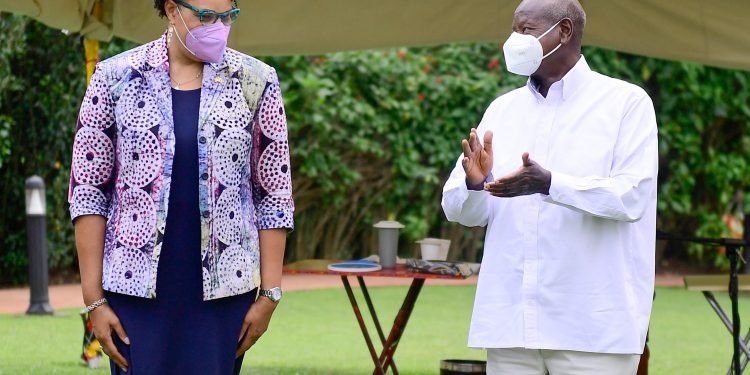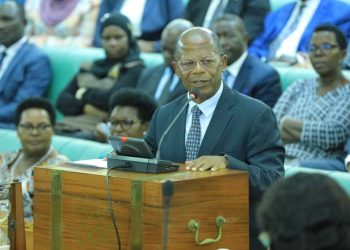In a recent meeting between President Museveni and outgoing United States Ambassador Natalie Brown, the president expressed his belief that the backlash from the West against Uganda’s anti-homosexuality law is unjustified.
He clarified that the law does not criminalize individuals for simply being gay or lesbian but instead targets recruitment into homosexuality, exhibitionism, promotion of sexual orientation, and engaging in homosexual acts with non-consenting individuals.
While the US Embassy confirmed the meeting, details were not disclosed. However, the embassy expressed concerns that the law would further marginalize the LGBTQI+ community and undermine decades of progress in health and human rights.
The embassy did not provide specific evidence to substantiate claims of increasing victimization of gays and lesbians.
During the meeting, President Museveni questioned Ambassador Brown on whether she had read the law herself and if representations made by the US government and other Western leaders accurately reflected its provisions.
The ambassador acknowledged reading the law but mentioned that foreign governments consider broader public proclamations by Ugandan officials that imply criminalization of same-sex relations.
Ambassador Brown also raised concerns about the potential targeting of individuals supplying condoms and lubricants to the LGBTQI+ community. She criticized Health Minister Jane Aceng for her stance on homosexuality, fearing it would reverse years of progress in healthcare and HIV/AIDS treatment, which are supported by international development partners.
The passing of the anti-gay law prompted strong reactions from US President Joe Biden and Secretary of State Antony Blinken. President Biden called the legislation a violation of universal human rights, expressing concerns about the safety of innocent Ugandans seeking medical care.
Secretary Blinken announced measures to support LGBTQI+ individuals in Uganda and consider visa restrictions against Ugandan officials for human rights abuses.
The US-Uganda relationship has been strained since President Museveni signed the law, despite President Biden’s request to refrain from doing so. President Museveni criticized threats of aid cuts and travel restrictions, calling them counterproductive and urging the West to reconsider their approach.
The anti-gay law has faced condemnation from several countries and organizations, while some countries, including Kenya, have expressed support for it. The issue of homosexuality remains divisive, driven by cultural differences and differing perspectives on sexual orientation.
President Museveni also highlighted Uganda’s significant contributions to regional security, particularly in Somalia, where Ugandan troops are part of the African Union Transition Mission. The president warned that a sudden disengagement of involved militaries could lead to chaos and the potential emergence of terrorism.
In his address to Parliament, President Museveni defended the anti-homosexuality law, arguing that homosexuality has long existed in African societies but has been traditionally frowned upon.
He emphasized that the law aims to provide assistance rather than punishment, asserting that homosexuals who abandon the practice can be reformed. The president pledged to address the nation on television to dispel what he perceives as false claims and misconceptions about the law.
The United Kingdom and the European Union criticized the law, with the UK Development Minister stating that it undermines the protection and freedoms of all Ugandans. The EU, a major supporter of Uganda, warned that failure to uphold human rights could affect bilateral relations.
President Museveni plans to arrange a dedicated broadcast on the issue in late June to further clarify the provisions and intentions of the law.
































































